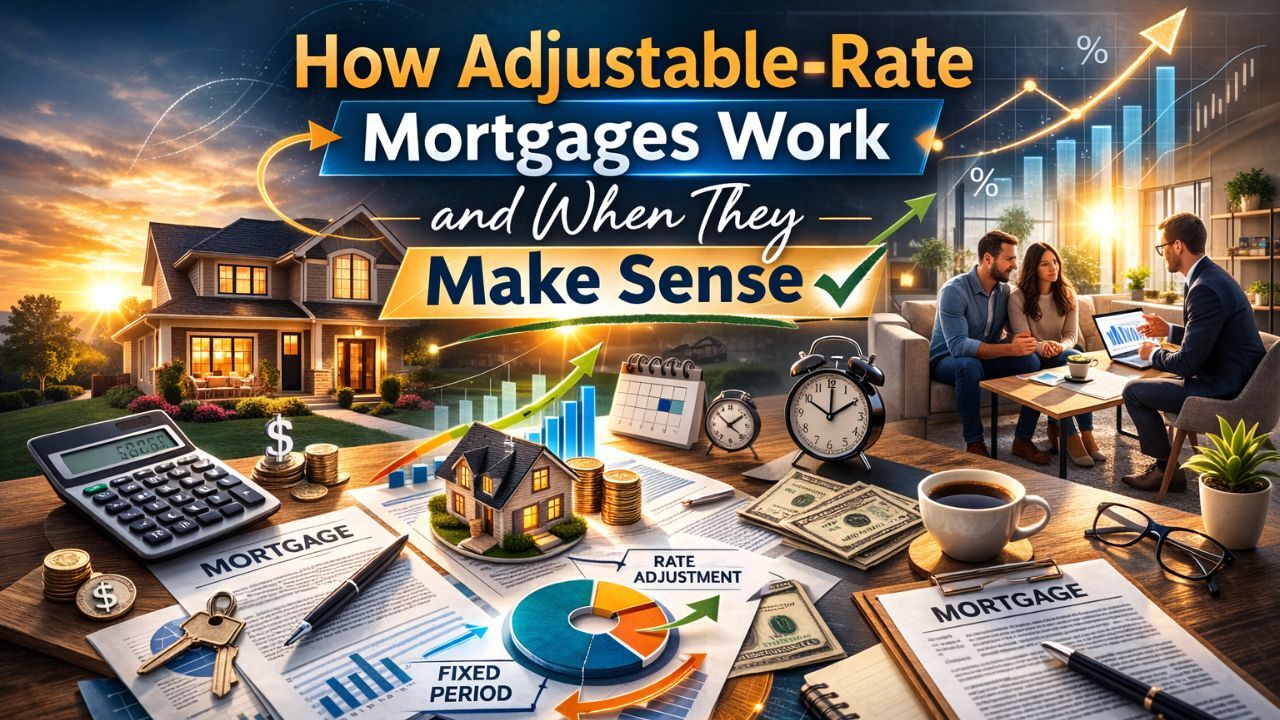How Adjustable-Rate Mortgages Work and When They Make Sense
 Adjustable-rate mortgages often create hesitation because borrowers focus on the word adjustable. However, these loans can serve a strategic purpose when aligned with specific financial timelines.
Adjustable-rate mortgages often create hesitation because borrowers focus on the word adjustable. However, these loans can serve a strategic purpose when aligned with specific financial timelines.
An adjustable-rate mortgage typically offers a fixed introductory period followed by periodic rate adjustments based on market indexes. Understanding how these loans are structured helps borrowers determine whether the flexibility outweighs potential variability.
How the Structure Works
An adjustable-rate mortgage generally begins with a fixed rate period, often five, seven, or ten years. After this introductory phase, the rate adjusts at scheduled intervals according to a benchmark index plus a margin. Most adjustable loans include caps that limit how much the rate can increase at each adjustment and over the life of the loan. Reviewing these caps is critical before choosing this structure.
When Short-Term Ownership Aligns
Borrowers who plan to sell or refinance within the fixed period may benefit from the lower introductory rate. If the property is not intended as a long-term residence, locking into a thirty-year fixed rate may not always be necessary. Matching the loan term to the anticipated ownership timeline can reduce overall borrowing costs.
Income Growth Considerations
Some borrowers expect steady income growth over time. In those cases, an adjustable rate may provide lower initial payments while income increases. However, this strategy requires conservative planning. Borrowers must evaluate worst-case scenarios and confirm they could manage higher payments if rates rise.
Risk Management Matters
Adjustable loans are not speculative tools. They require discipline and a defined exit strategy. Borrowers should evaluate savings reserves, refinancing options, and market conditions before committing. Stress testing the potential payment increase provides clarity.
An adjustable-rate mortgage can be appropriate when aligned with a clear timeline and financial strategy. If you want to review whether this loan structure supports your long-term plan, reach out to evaluate your mortgage options with precision.

 Interest rates get headlines. Payment amounts get attention. Yet neither one determines whether your mortgage will feel sustainable five years from now. What truly determines long-term satisfaction is how your financing decision supports your daily routine.
Interest rates get headlines. Payment amounts get attention. Yet neither one determines whether your mortgage will feel sustainable five years from now. What truly determines long-term satisfaction is how your financing decision supports your daily routine.